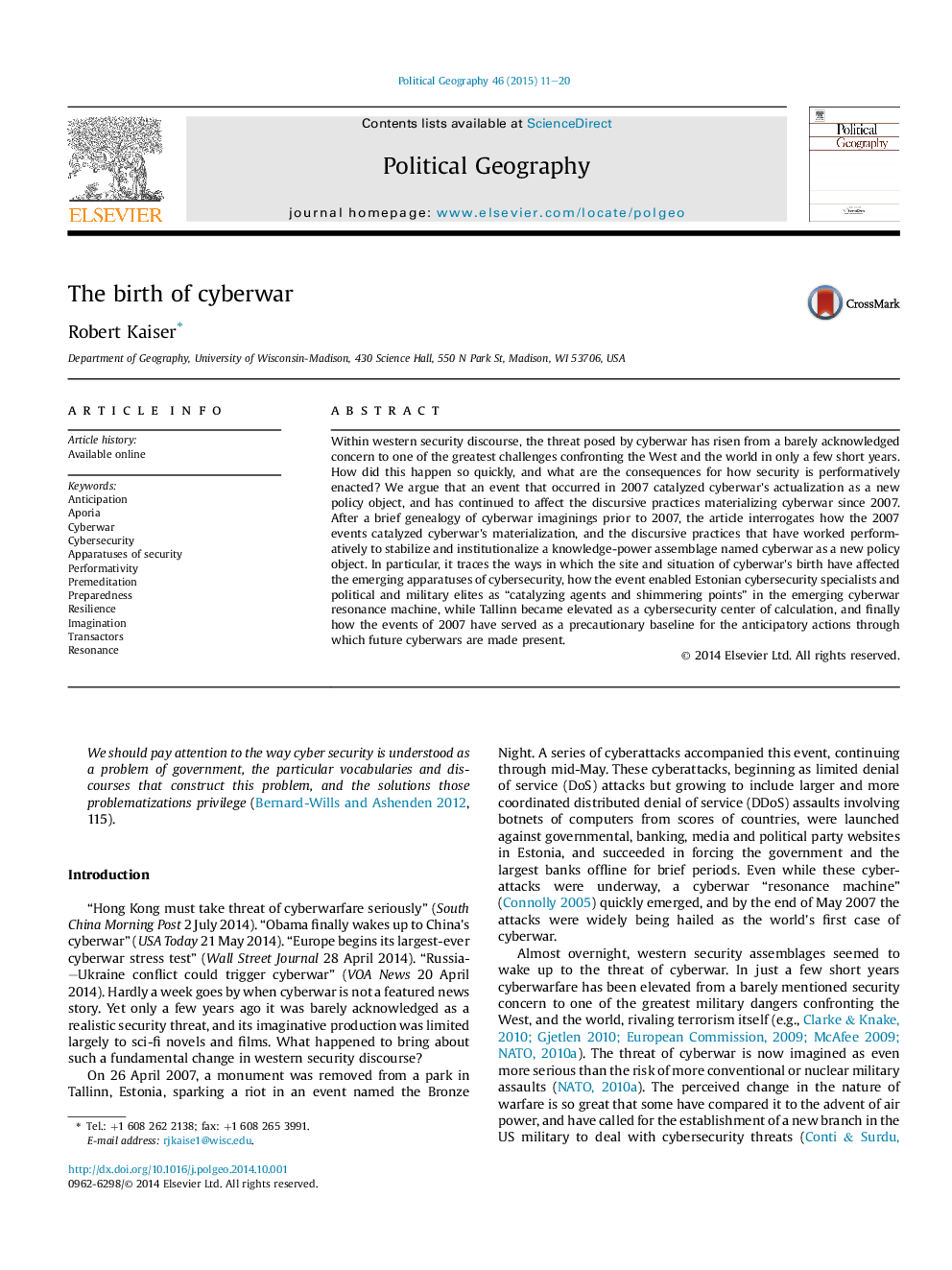| Article ID | Journal | Published Year | Pages | File Type |
|---|---|---|---|---|
| 7493262 | Political Geography | 2015 | 10 Pages |
Abstract
Within western security discourse, the threat posed by cyberwar has risen from a barely acknowledged concern to one of the greatest challenges confronting the West and the world in only a few short years. How did this happen so quickly, and what are the consequences for how security is performatively enacted? We argue that an event that occurred in 2007 catalyzed cyberwar's actualization as a new policy object, and has continued to affect the discursive practices materializing cyberwar since 2007. After a brief genealogy of cyberwar imaginings prior to 2007, the article interrogates how the 2007 events catalyzed cyberwar's materialization, and the discursive practices that have worked performatively to stabilize and institutionalize a knowledge-power assemblage named cyberwar as a new policy object. In particular, it traces the ways in which the site and situation of cyberwar's birth have affected the emerging apparatuses of cybersecurity, how the event enabled Estonian cybersecurity specialists and political and military elites as “catalyzing agents and shimmering points” in the emerging cyberwar resonance machine, while Tallinn became elevated as a cybersecurity center of calculation, and finally how the events of 2007 have served as a precautionary baseline for the anticipatory actions through which future cyberwars are made present.
Keywords
Related Topics
Social Sciences and Humanities
Arts and Humanities
History
Authors
Robert Kaiser,
